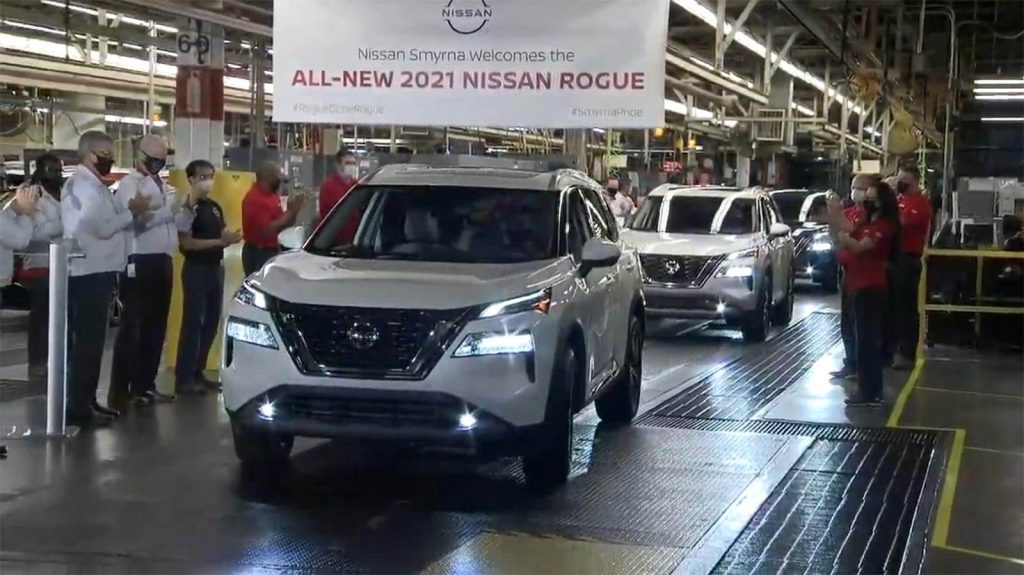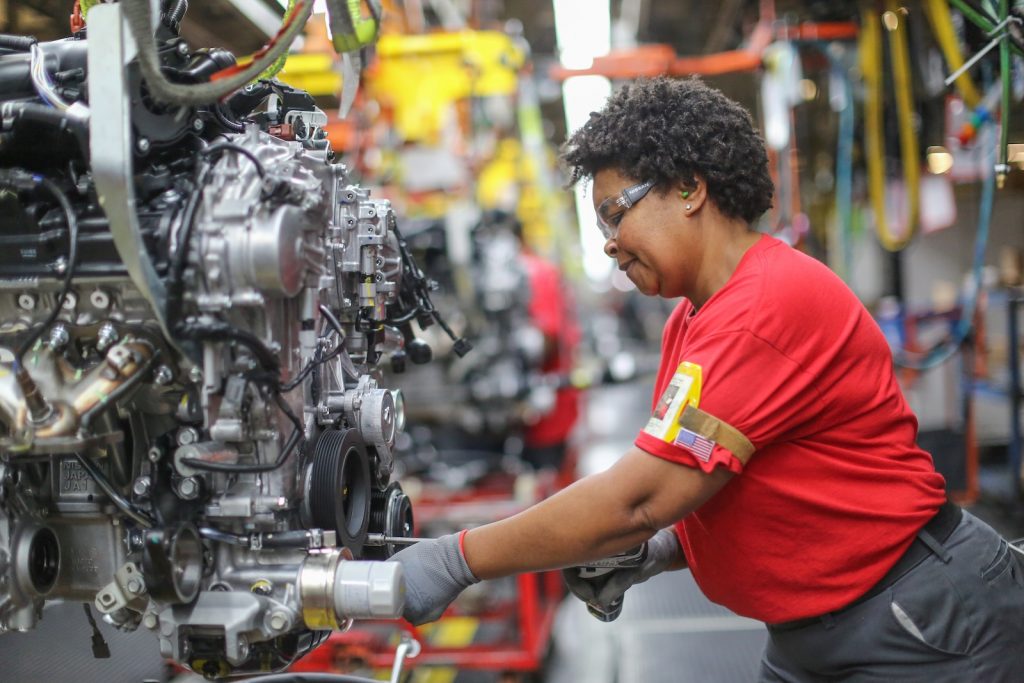Nissan will close its assembly plant in Smyrna, Tennessee for two weeks starting Aug. 16 due to a shortage of semiconductors, indicating the issue remain front a center as automakers prepare for the annual model change and the industry’s autumn production push.

“We hope we can resume production before the end of the month,” said Nissan spokeswoman Ly Love-Carter said during a phone conversation with TheDetroitBureau.com.
“We are further adjusting our U.S. production schedules in August due to a Malaysia-based supplier that has shut down because of an outbreak of new COVID-19 cases. Our Smyrna, Tennessee plant will be on a two-week shutdown starting Aug. 16. We expect to resume production on Aug. 30.”
The sprawling Smyrna plant, which is about 30 miles east of Nashville in central Tennessee and is the Japanese automaker’s largest production center in North America. The Smyrna plant builds the Nissan Rogue, Pathfinder, Murano, Leaf, Maxima as well as the Infiniti QX60.

Love-Carter said the temporary shutdown is not expected to delay the launch and introduction of Nissan new models such as the all-new Nissan Pathfinder.
Nissan’s shortage of semiconductors has not impacted Nissan’s assembly plant in Canton, Mississippi where the Nissan Frontier pickup truck is built, she said.
Pandemic hits Malaysia
The spread of COVID-19 in Malaysia and neighboring Singapore, both centers for the semiconductor industry, have led to lockdowns and other restrictions in those countries. As a result, there is a new round of disruptions of the chip supply flowing to automakers around the globe.

The shutdowns in Malaysia are the latest in long string of disruptions in China, Taiwan, Japan and even the United States that have frustrated automakers and their suppliers.
The shutdowns in the auto industry, which have frustrated auto executives, have even caught the attention of the White House. President Joe Biden said he intended to push his administration to find ways to stimulate semiconductor production again in the United States where the chip industry began originally.
Shortages strain automakers everywhere
Meanwhile, it’s been a topic during recent calls with analysts’ by auto executives such as Ola Källenius of Daimler AG, who said he hoped the shortage would finally ease early next year.
General Motors is also shutting down plants building its strong-selling pickups due to the issue for the first time since the problem began.
The shortages, which began slowing production various auto manufactures late in 2020, appear to have eased somewhat. Both Stellantis and Ford Motor Co., which reported sharp cuts in vehicle production linked to the semiconductor shortages, said the week all their plants in North America operated normal schedules this week.







